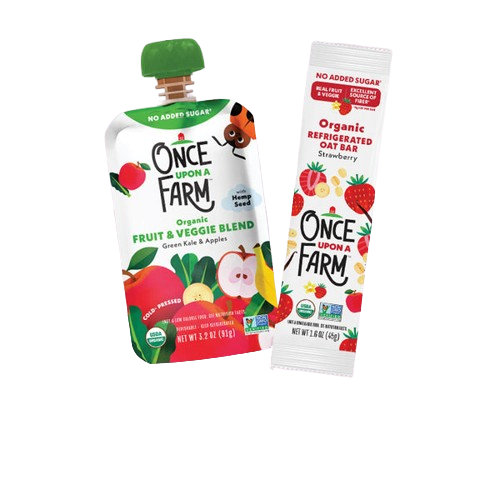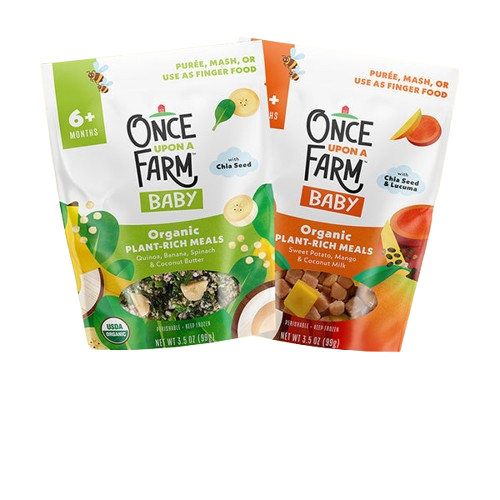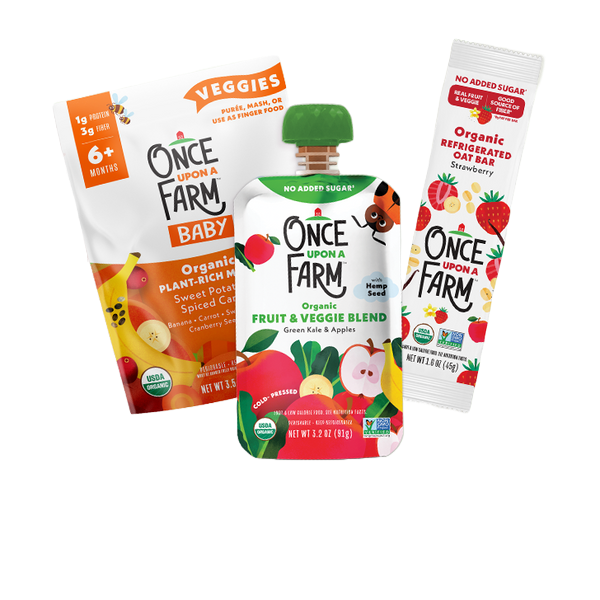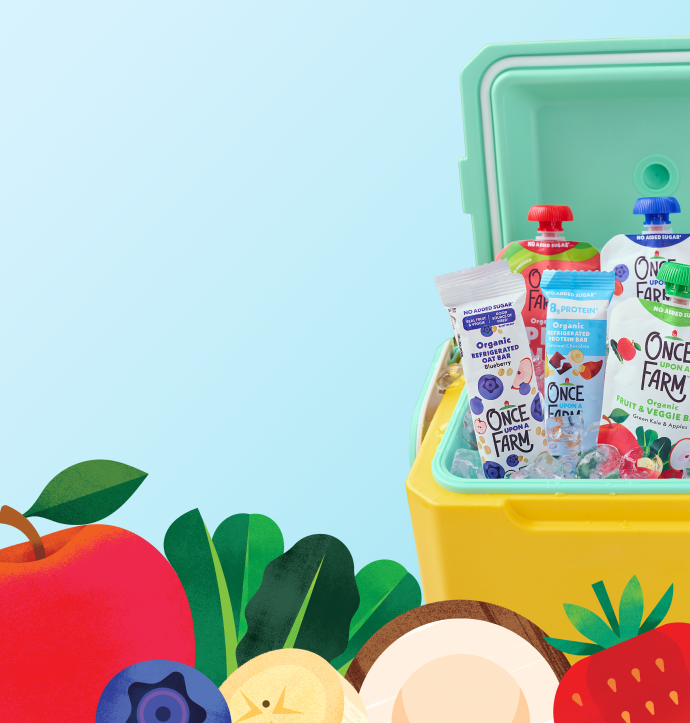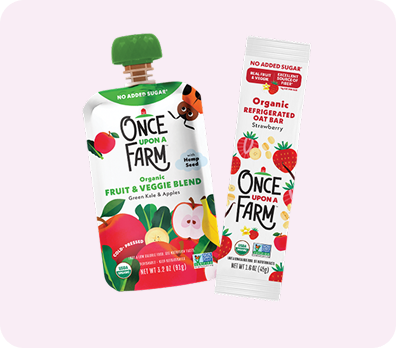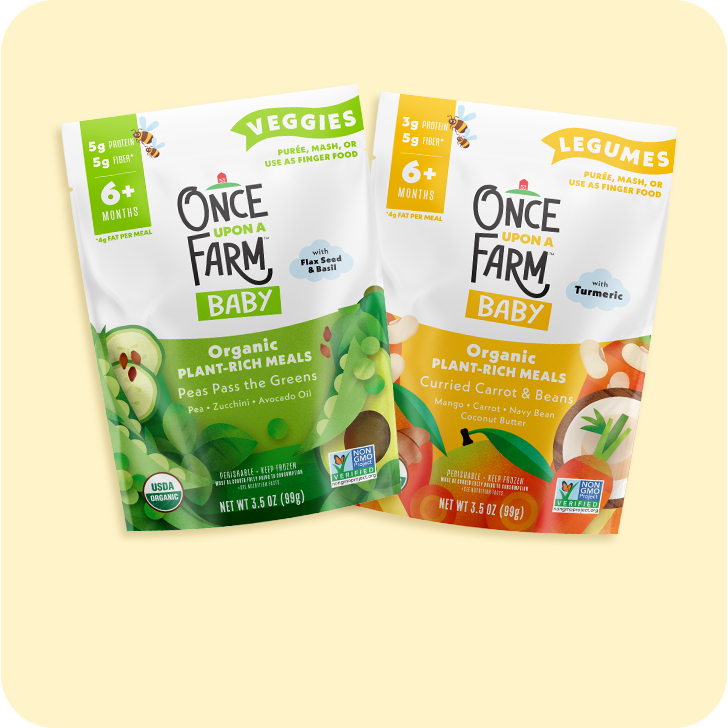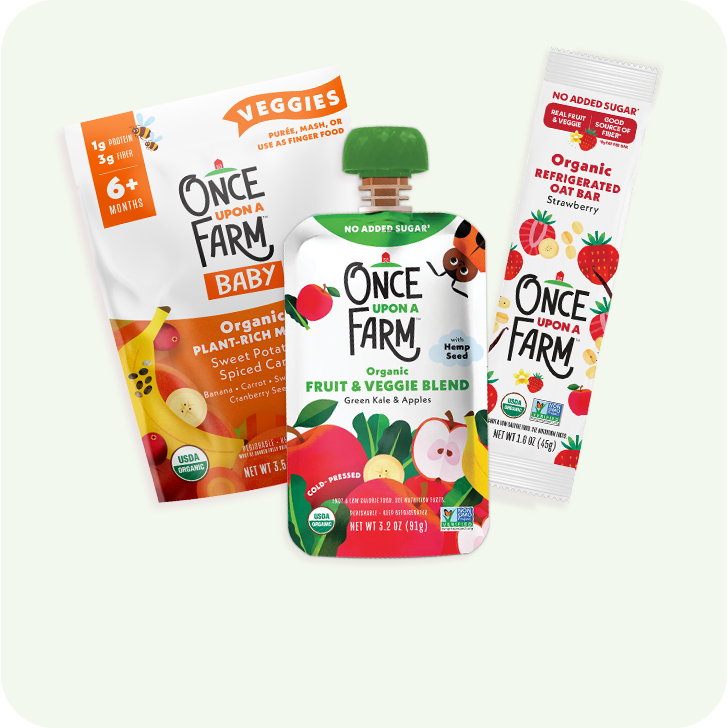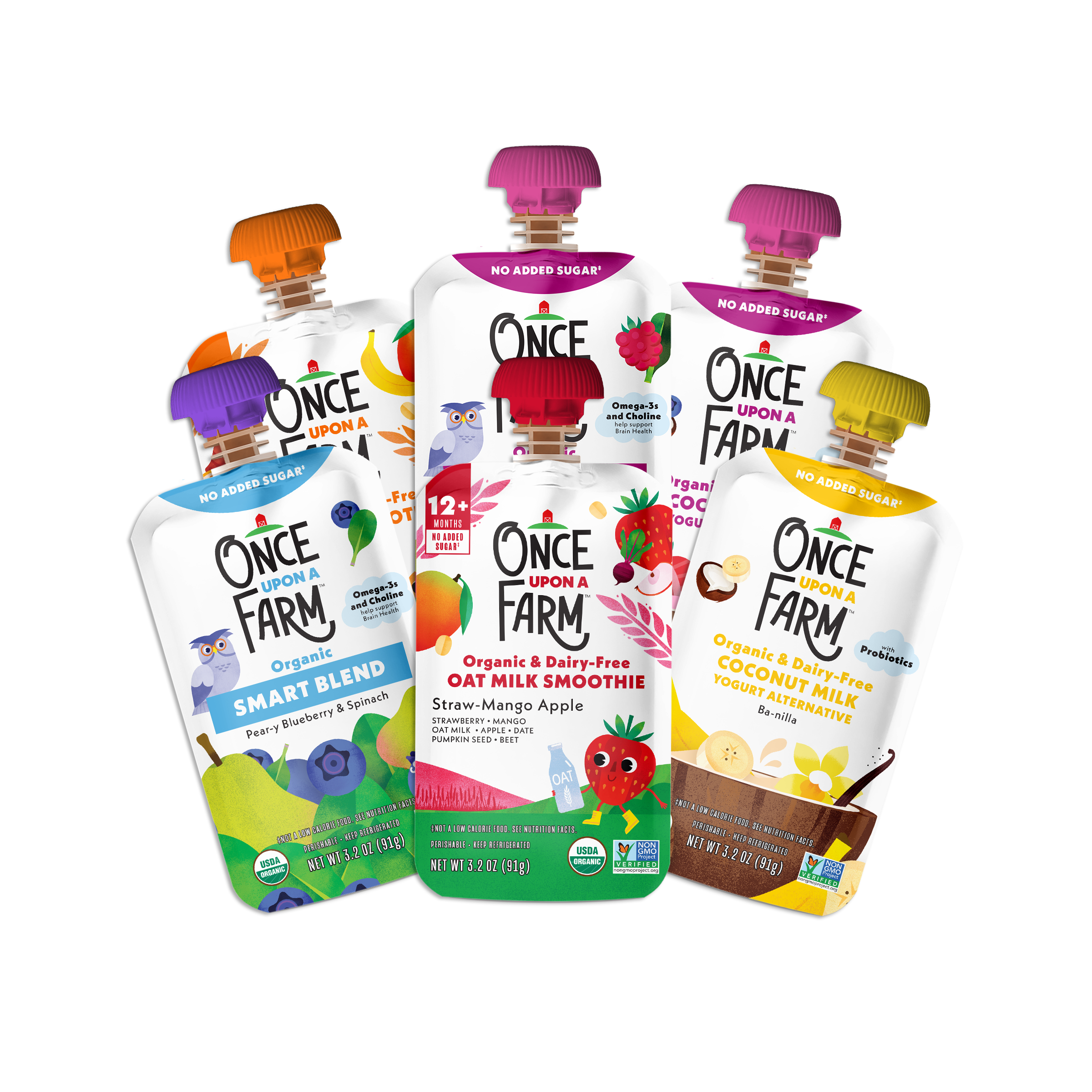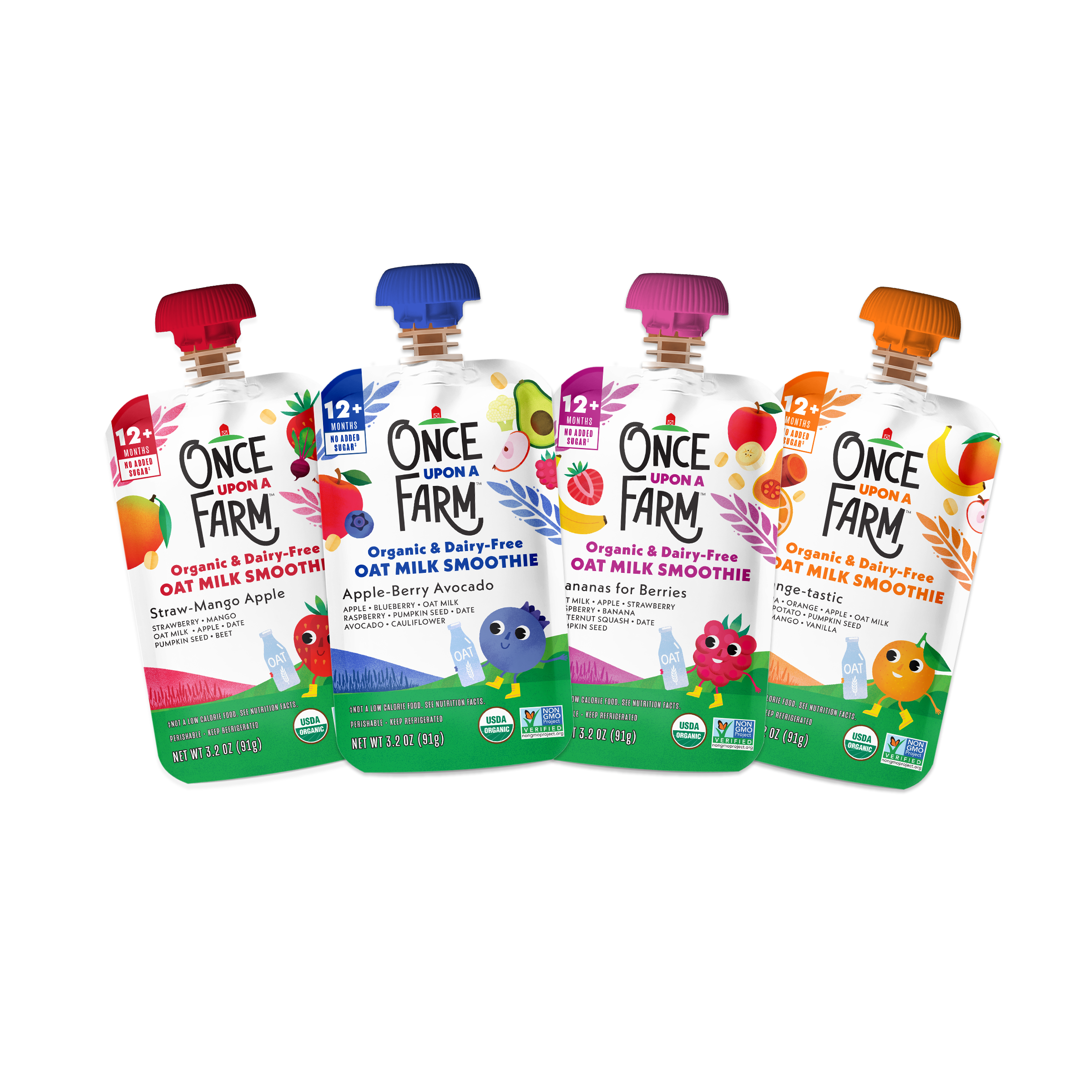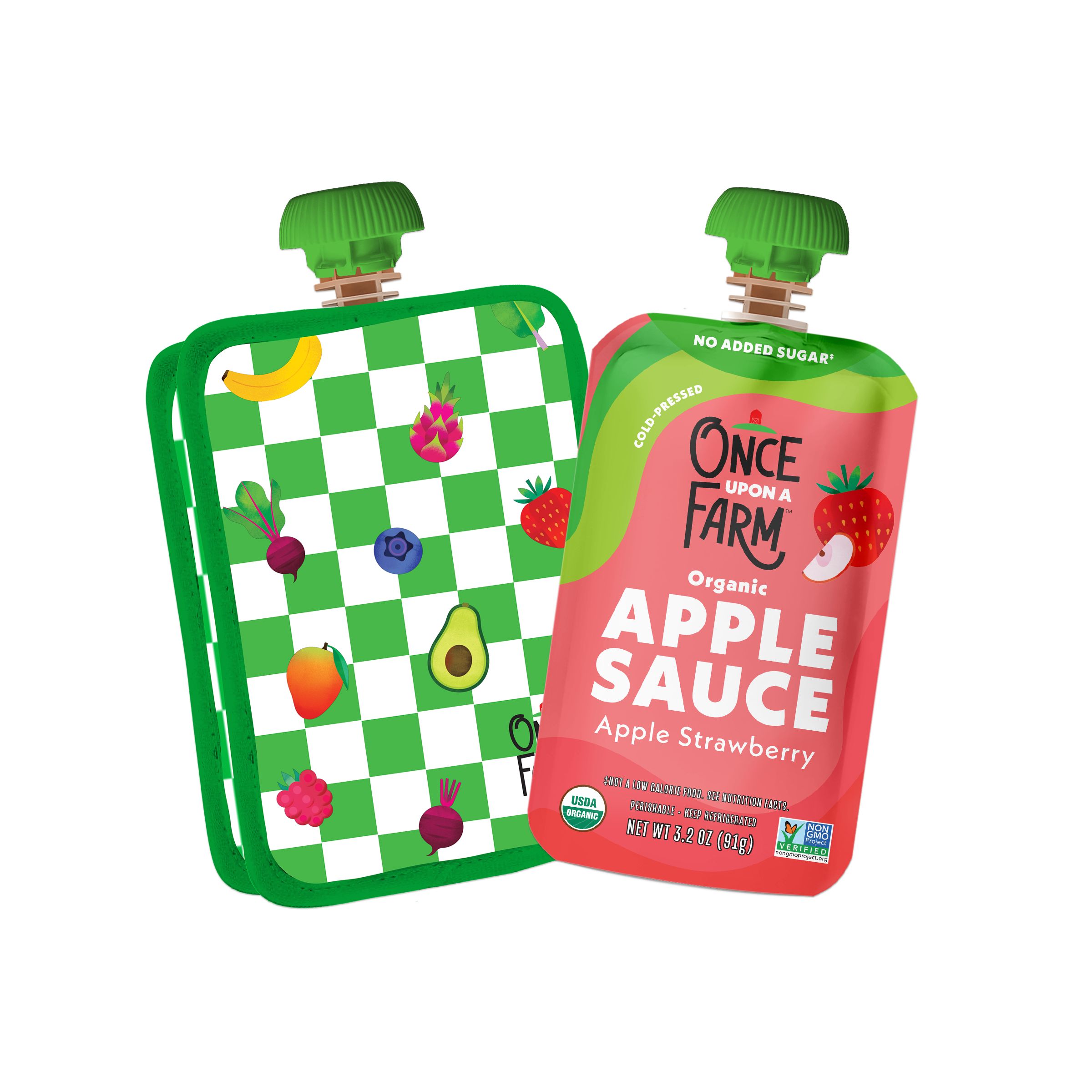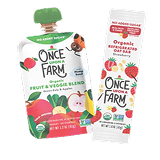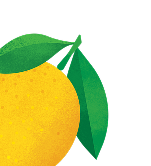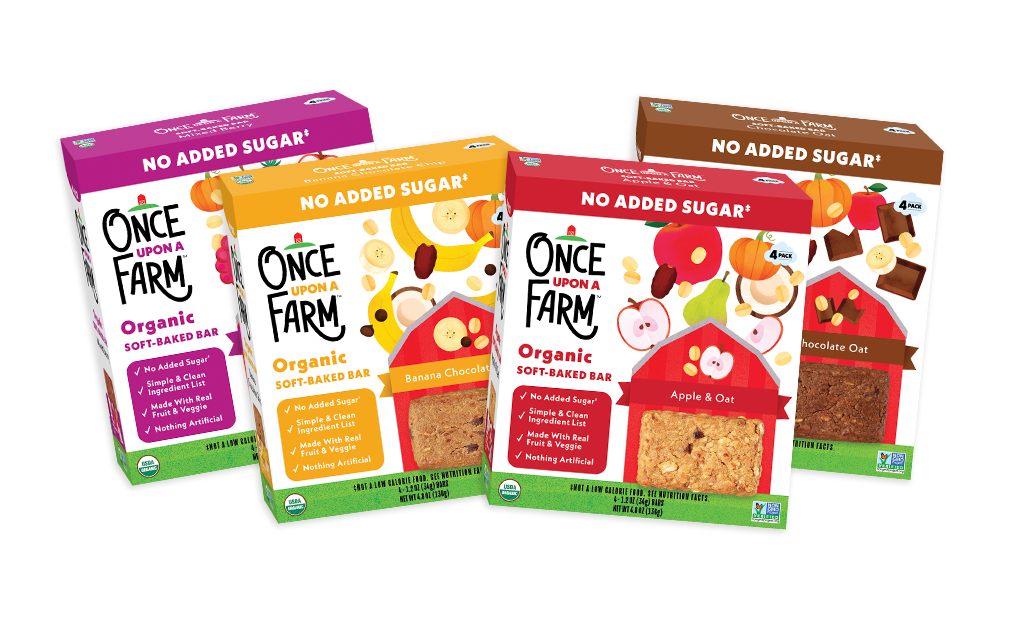Feeding your baby comes with lots of questions—and quite a bit of mess. It’s the same story with self-feeding, although maybe with more mess! When do you start? How do you start? And what about utensils? Let’s dive in.
Why Is Self-Feeding Important?
Not only does self-feeding support motor skill development (super important), but it also supports your child’s autonomy and empowers them to listen—and attend—to their hunger and fullness. As Registered Dietitian Nicole Lattanzio (@infant.nutritionist) explains, “When we are spoon-feeding baby, we follow what we perceive at hunger and fullness cues.” However, when the baby is able to feed themselves, “They can do this even better as well as choose which foods on their plate they wish to eat at that time.” This encourages intuitive eating, which is an amazing skill to instill young.
When Should Self-Feeding Happen?
“Babies should be feeding themselves by the time they reach 12 months.” Lattanzio says. However, many babies will be feeding themselves earlier. That being said, many will feed themselves prior to this age and can start with self-feeding at the beginning of introducing solids at 6 months of age.
Note: Ensure your child is showing signs of readiness for solids and always check with your child's healthcare provider if you have any questions/concerns.
Wait, What About Utensils?
Start with spoons. These can be introduced with the introduction of solids. Lattanzio suggests, “Offering preloaded spoons,” as this “allows baby to feed themselves purées and mashes.” Forks can also be helpful when offering small pieces of food. “These can be offered as preloaded forks for babies under a year.” Often babies can use a spoon themselves around 12 months of age. Typically, around 18 months or so, they will become more efficient at using utensils.
Is Using Their Hands OK?
If your kiddo prefers eating with their hands, have no fear! “Feeding with hands is perfectly normal and acceptable!” Lattanzio assures us. Your little one is getting great sensory input by touching their foods; also, eating with hands is just more efficient for them! Offer utensils, but remember, “If your little one uses utensils briefly and then ditches them for their hands, that’s okay!” Lattanzio says. “It will get better over time with practice and development.”
Forks may be tossed, spoons may be flung, but your little one will tackle self-feeding like they do all these things—in their time and precisely their way. So, be patient. You’ve got this!

